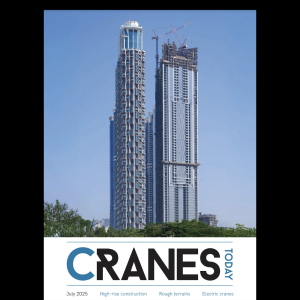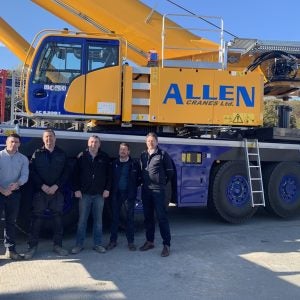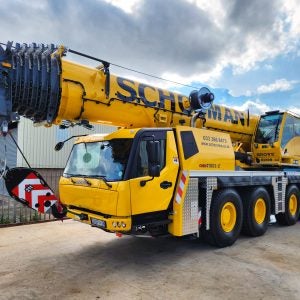Our aim is to ensure the survey provides a clear description of the capabilities of every fleet that chooses to be listed. Some things will never change. Fleet File will always be open to anyone who wishes to be listed. There will never be a fee for taking part. The core aim of Fleet File will always be to help customers find the cranes they need, for the job in hand.
This year though, we have made a lot of changes. These are all aimed at better describing the jobs fleets can handle.
In the past, our tower crane survey was split up by crane type. Now, like our mobile crane categories, it is split up by capacity. I’ve chosen these categories based on discussion with tower crane manufacturers and users.
While it’s impossible to have each capacity correspond to a specific job type, and there will undoubtedly be some overlap, I think these new bands are more useful than our previous classification by type.
The smallest tower cranes, under 8t, correspond roughly to cranes for housebuilding, including both self erectors and traditional tower cranes. The next category, from 8t-25t, include cranes for high rise construction, and for sites where more reach is required. Above that, from 25t-40t are cranes for infrastructure projects. Finally, cranes over 40t cover special applications.
We’ve added a new category this year, compact cranes. In the past, we’d included some minicrane fleets in our smallest crawler crane capacity bands. While some of these cranes do indeed run on crawler tracks, they don’t compete for the same jobs as, say, a 40t lattice boom crawler crane. Now, owners of these cranes can list them in their own categories, making clear the sort of jobs they may be used for (and not confusing our rankings of crawler fleets).
Finally, we’ve split up how we cover telecrawlers. For most of these cranes, they should now be listed alongside rough terrain cranes. I think this more accurately reflects the jobs both crane types are competing for. For the biggest telecrawlers, over 600t, we’ve left them with crawler cranes, as they are typically competing for the same jobs on wind farms.
I hope you will agree the new Fleet File will make it even easier for you to describe your fleet. For the second year running, we will be publishing Fleet File as a standalone supplement, alongside our December issue. To take part, you can fill in the simple online form, at www.cranestodaymagazine.com/fleetfile.
My colleague Kate Hearn will be calling fleet owners over the next few months to remind them to take part. She can also help you choose ways to build on the promotional opportunities presented by taking part. Her contact details are across the page.
Will North Editor
wnorth@cranestodaymagazine.com






